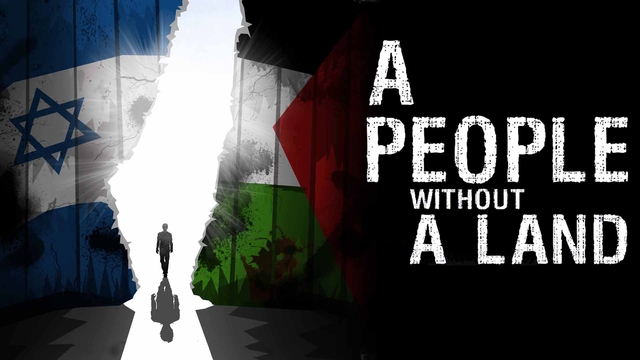The Producers

Eliyahu Ungar-Sargon (Writer, Director, Cinematographer) grew up in an Orthodox Jewish family in Brookline, MA. When he was 13 years old, his family moved to Israel where he lived until he was 19. Upon earning his Bagrut matriculation, Eliyahu decided not to serve in the Israeli Defense Forces with his peers choosing instead to study Medicine in the UK. Three years into his MD degree, he decided to abandon Medicine to pursue a career in film. After earning two degrees from the School of the Art Institute of Chicago, Eliyahu completed his first feature-length documentary, Cut: Slicing Through the Myths of Circumcision. He has since completed Generation Gap, a short, minimalist documentary about the impact of the Holocaust on three generations of his family. A People Without a Land is his second feature-length documentary.

Pennie Ungar-Sargon (Producer) grew up outside of Chicago and now lives in Los Angeles. She has a background in sales and marketing, and experience in documentary production and distribution. In 2007, Ungar-Sargon founded White Letter Productions and produced the critically acclaimed documentary Cut: Slicing Through the Myths of Circumcision. This documentary has screened internationally and was most recently featured at the 2014 Pasadena Film Festival. Se is a proud member of MENSA, holds a bachelor's degree in psychology, studied Medicine in England, and recently completed an MBA at DePaul University.
Making The Film

For decades, the prevailing wisdom has been that the solution to the Israeli-Palestinian conflict would come in the form of a two-state solution. Typically, this is formulated as an Israeli withdrawal from the West Bank and the establishment of a Palestinian state there and in the Gaza Strip. Unfortunately, with half a million Israeli settlers living throughout the West Bank and millions of Palestinian refugees demanding to return to their homes in Israel, the two-state solution no longer seems practical, let alone just. "A People Without a Land" explores the notion that the only real solution to the Israeli-Palestinian conflict is a one-state solution. Spending time with people from across the political spectrum, including settlers, politicians, activists and unique individuals who have successfully crossed the ethnic divide, we explore the challenges that lie ahead as well as the possibilities that such a solution might entail.
 Settlement expansion across Palestine is out of control - now we need to speak about the One State Solution. Is the patchwork of remaining Palestinian land now so fragmented it could never form a viable future state? This incisive film explores the question of whether Israeli settlers have destroyed all hope of return for the villages' original occupants and asks if the One State Solution is doomed beyond hope of being salvaged.
Settlement expansion across Palestine is out of control - now we need to speak about the One State Solution. Is the patchwork of remaining Palestinian land now so fragmented it could never form a viable future state? This incisive film explores the question of whether Israeli settlers have destroyed all hope of return for the villages' original occupants and asks if the One State Solution is doomed beyond hope of being salvaged.
 Official Selection - Manhattan Film Festival, 2014
Official Selection - Manhattan Film Festival, 2014
 Official Selection - Raindance, 2014
Official Selection - Raindance, 2014
 Official Selection - UNAFF International Documentary Film Festival, 2014
Official Selection - UNAFF International Documentary Film Festival, 2014
 Official Selection - Oaxaca Filmfest, 2014
Official Selection - Oaxaca Filmfest, 2014
 Official Selection - Boston Palestine Film Festival, 2014
Official Selection - Boston Palestine Film Festival, 2014








